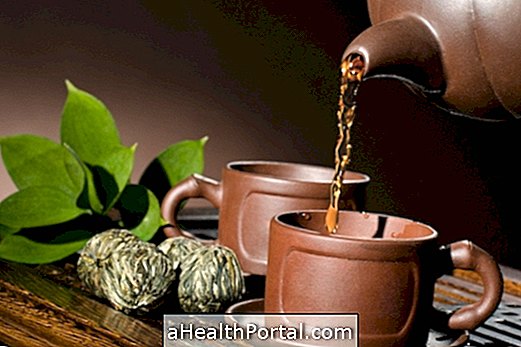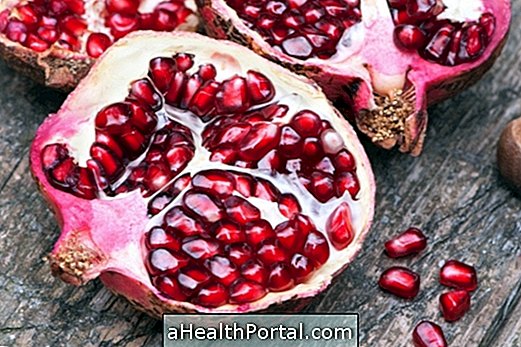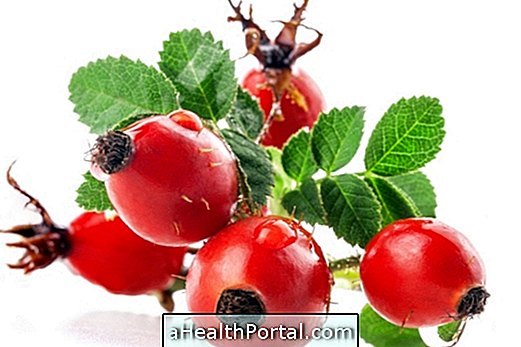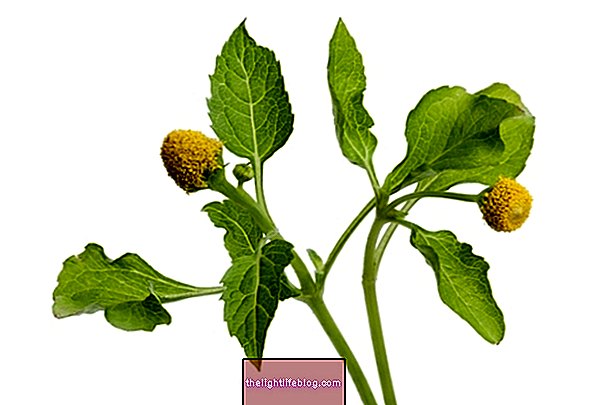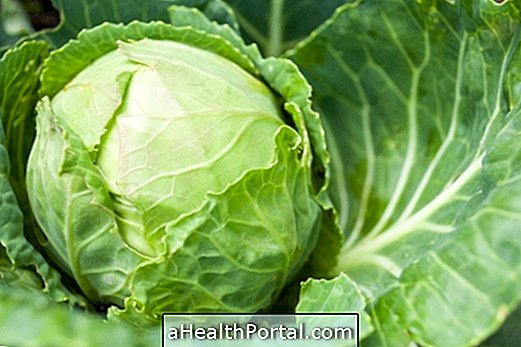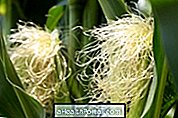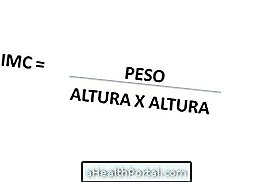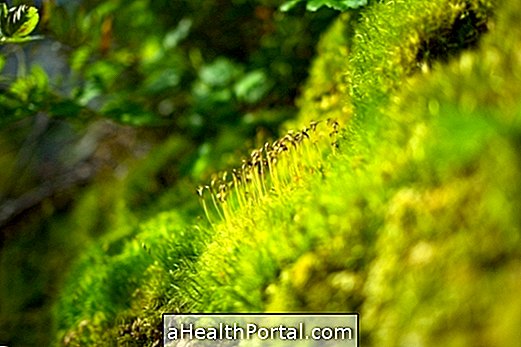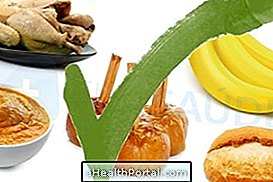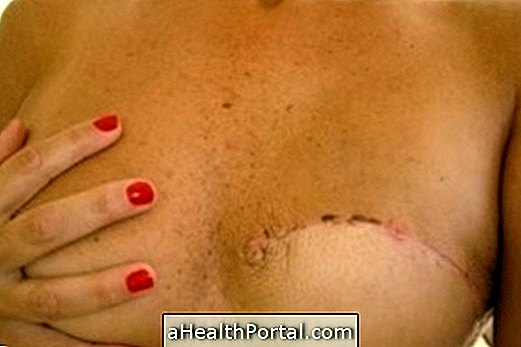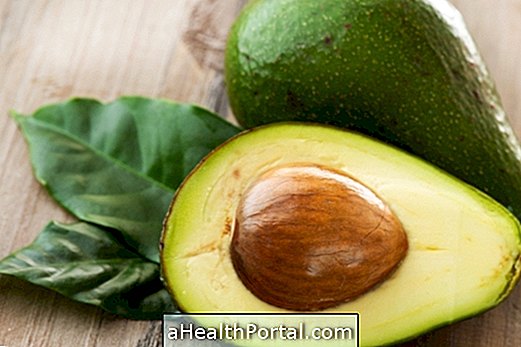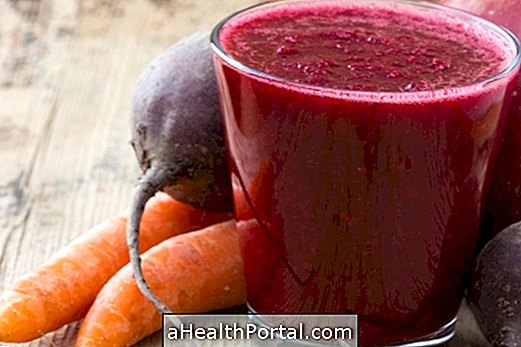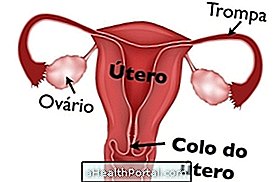Burdock is a medicinal plant, also known as Burdock, Pea Herb, Pegasus or Giant's Ear, widely used in the treatment of dermatological problems such as acne or eczema, for example.
The scientific name of Burdock is Arctium lappa and can be bought in natural products stores, handling pharmacies and in some free trade shows.

This plant can also be used to relieve symptoms of gastrointestinal problems such as constipation or poor digestion. Thus, some of the most common uses of Burdock include:
1. Treat gastric problems
Burdock can be used in cases of gastritis or even stomach pain without a specific cause, as it relieves irritation of the gastric mucosa, because it has a good soothing and anti-inflammatory properties. In addition, as it also has colagnetic and choleretic action, it stimulates the functioning of the gallbladder, which facilitates digestion.
- How to Use Burdock for Gastric Problems : Place 3 tablespoons of burdock root in a pan, boiling with 1 liter of water for 5 minutes. Allow to soften, strain and drink up to 3 cups a day.
See also how to use burdock in stone cases in the gallbladder.
2. Eliminate fluid retention and cellulite
Burdock tea has excellent diuretic and depurative properties that, in addition to eliminating excess fluid through the urine, can also help fight cellulite, especially if it is associated with a balanced diet and regular exercise.
- How to use Burdock for retention and cellulite : Place 1 tablespoon of burdock in a pan with 300 ml of water and boil for 10 minutes. Then strain the mixture and let it stand for 5 minutes or until cool. Drink 2 to 3 cups of tea a day to ensure the best results.
3. Avoid kidney cramps
This tea can even be used to relieve mild kidney cramps or even prevent them from appearing because because of its diuretic action, it may be able to eliminate small kidney stones and sands that cause the onset of pain.
- How to use burdock for renal colic : boil 1 liter of water and add 1 tablespoon of chopped burdock leaves. Then cover and let stand 10 minutes or until tender. Finally, it is necessary to strain the mixture and to drink it little by little during the day.

Other indications of burdock
Burdock can also help treat acne, boils, abscesses, eczema, dandruff, diabetes, rheumatism, gout, bronchitis or nephropathy, for example.
Check out how to use burdock and other plants in the treatment of acne and pimples on the skin.
Main properties
Burdock's properties include its antibacterial, fungicidal, astringent, anti-inflammatory, antiseptic, soothing, healing and depurative action.
Possible side effects
The major side effects of Burdock include increased urinary frequency, stimulation of uterine contractions, and increased blood sugar levels in diabetic patients.
Who should not use burdock
Burdock is contraindicated for pregnant women, children and patients with diarrhea.
